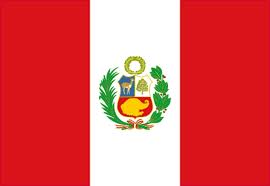 [Reposted from AccessNow.org] Last June, my government proposed a law that could have imprisoned the average internet user for no fault of their own. The Cybercrime Bill would have overturned our Constitutional right to communications secrecy and given police easy access to our data. With Access, we created a coalition of voices pushing for a revised law that protected user rights to privacy and freedom of expression. That fight is not over: the Cybercrime Bill is dormant but not dead. However, until civil society gains a stronger voice over internet policy, and Peruvian politicians recognize us as meaningful stakeholders, we only expect more of the same problematic laws.
[Reposted from AccessNow.org] Last June, my government proposed a law that could have imprisoned the average internet user for no fault of their own. The Cybercrime Bill would have overturned our Constitutional right to communications secrecy and given police easy access to our data. With Access, we created a coalition of voices pushing for a revised law that protected user rights to privacy and freedom of expression. That fight is not over: the Cybercrime Bill is dormant but not dead. However, until civil society gains a stronger voice over internet policy, and Peruvian politicians recognize us as meaningful stakeholders, we only expect more of the same problematic laws.
Like many countries in Latin America and beyond, Peru is a state whose political representatives lack familiarity with internet issues and technology. Our national policies are still generic guidelines that stifle innovative solutions and smart laws. Unlike on other public issues, such as political violence or discrimination, there are few voices that contribute to public debate on internet policy in Peru from the perspective of civil society. As a result of this gap, user interests are not represented when Congress proposes bills affecting our rights.
This creates a predictable imbalance in the legislative process. Often, the only external views come from the companies and investors able to hire lawyers in their favor. Many opinions and valuable ideas from civil society are lost in the media and fail to become actual proposals. At the same time, this imbalance also generates a partially informed, warped public opinion, familiar only with one side of the controversy.
Any campaign from civil society on internet public policy in Peru faces a double challenge: to increase public understanding of the issues under discussion on one hand, and to balance the debate from the perspective of users’ rights and freedoms on the other. Otherwise, we get laws like the Cybercrime Bill, with vague wording and legislative technical errors that could affect individual rights.
Thanks to the interest of many local and international civil society institutions, the members of Congress have received letters with comments on the most critical aspects of the project. Lately, it seems that the government is no longer pushing for this Cybercrime Bill and has turned to work on the adoption of the Budapest Convention on Cybercrime (find the Convention text here). However, since no official update has been issued on this matter, this fight is not over. In fact, last September 18th, Congressman Eguren urged the Peruvian Congress to include the Cybercrime Bill in the Plenary’s discussion.
In this context, a well-informed community and strong voices from civic society are needed. That’s why a group of young professionals has decided to join forces to create Hiperderecho, a group dedicated to studying and facilitating public understanding of public policy on the internet in Peru. As a first project, Hiperderecho has created an educational and positive platform called “A Better Cybercrime Act.” The platform intends to explain the Bill, collecting all information available online. Next, the platform proposes five specific changes that would help achieve a better balance of interests in the text of the Bill. The full text of the proposal can be read on the Hiperderecho website. Of course, it is a social platform open to feedback and continuous improvement. We look forward to meeting you online. In addition to expressing your opinion, you can also read the proposed Bill and the full spectrum of commentaries made to it, and take action by writing to Congress or your representatives.




